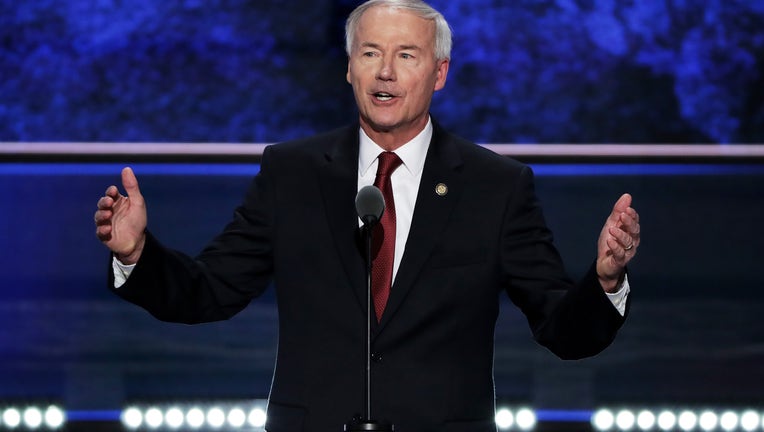Arkansas governor signs legislation banning nearly all abortions in the state

Gov. Asa Hutchinson (R-AR) delivers a speech on the second day of the Republican National Convention on July 19, 2016 at the Quicken Loans Arena in Cleveland, Ohio.(Photo by Alex Wong/Getty Images)
LITTLE ROCK, Ark. - Arkansas Gov. Asa Hutchinson on Tuesday signed into law legislation banning nearly all abortions in the state, a sweeping measure that supporters hope will force the U.S. Supreme Court to revisit its landmark Roe v. Wade decision but opponents vow to block before it takes effect later this year.
The Republican governor had expressed reservations about the bill, which only allows the procedure to save the life of the mother and does not provide exceptions for those impregnated by rape or incest. Arkansas is one of at least 14 states where legislators have proposed outright abortion bans this year.
Hutchinson said he was signing the bill because of its "overwhelming legislative support and my sincere and long-held pro-life convictions."
RELATED: Tennessee bill would allow fathers to prevent abortions
The bans were pushed by Republicans who want to force the U.S. Supreme Court to revisit its 1973 Roe v. Wade decision legalizing abortion nationwide. Conservatives believe the court is more open to striking down the decision following former President Donald Trump's three appointments to the court.
Hutchinson has signed several major abortion restrictions into law since taking office in 2015, but he had voiced concerns that this bill directly challenges Roe and about the lack of rape and incest exceptions.
RELATED: Supreme Court won't hear PA abortion clinic free speech case
"(The ban) is in contradiction of binding precedents of the U.S. Supreme Court, but it is the intent of the legislation to set the stage for the Supreme Court overturning current case law," he said in a statement released by his office. "I would have preferred the legislation to include the exceptions for rape and incest, which has been my consistent view, and such exceptions would increase the chances for a review by the U.S. Supreme Court."
The legislation won't take effect until 90 days after the majority-Republican Legislature adjourns this year's session. That means it can't be enforced until this summer at the earliest. Abortion rights supporters said they plan to challenge the ban in court before then.

